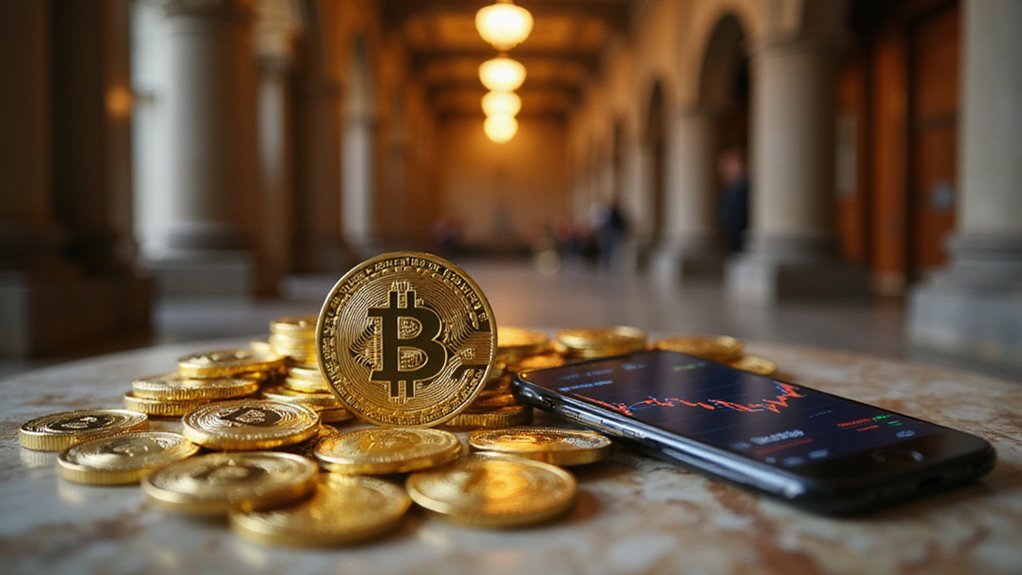Dubai has quietly orchestrated what may prove to be the most noteworthy regulatory coup in tokenized finance, with the Dubai Financial Services Authority‘s approval of the QCD Money Market Fund (QCDT) in July 2025—a milestone that transforms the emirate from blockchain-curious observer to the world’s first major financial center authorizing a fully tokenized money market fund.
The collaboration between Qatar National Bank and blockchain fintech DMZ Finance represents traditional banking’s most sophisticated embrace of distributed ledger technology, creating a hybrid that digitizes the staid world of money market funds while maintaining regulatory compliance within the Dubai International Financial Centre.
QNB handles investment strategy and asset origination—the unsexy fundamentals that actually matter—while DMZ Finance provides the blockchain infrastructure that enables fractional ownership and instant settlement.
QNB focuses on the unsexy fundamentals that actually matter while DMZ Finance delivers the blockchain infrastructure enabling fractional ownership and instant settlement.
What makes QCDT particularly intriguing isn’t merely its tokenized structure, but its practical applications across the digital asset ecosystem. The fund’s tokens serve as eligible collateral for banks, function as reserve backing for stablecoins, and integrate seamlessly with Web3 payment systems.
This creates a bridge between the $7 trillion global money market industry and decentralized finance protocols that have long struggled with reliable, institutional-grade backing assets.
The regulatory implications extend far beyond Dubai’s borders. The DFSA’s approval establishes a compliance framework that other jurisdictions will inevitably study, potentially accelerating the adoption of tokenized real-world assets globally.
Financial institutions watching from the sidelines now have a regulatory template that demonstrates how blockchain-enabled fund structures can operate within established international standards.
Perhaps most notably, QCDT positions Dubai as the de facto testing ground for institutional blockchain adoption. While other financial centers debate regulatory approaches, Dubai has simply moved forward—a characteristic pragmatism that has historically defined its economic development strategy.
The emirate’s willingness to embrace tokenization while maintaining rigorous oversight creates a competitive advantage that could attract global capital seeking blockchain-based institutional investments.
The success of QCDT may well determine whether tokenized funds become a niche experiment or the new standard for institutional asset management, making Dubai’s regulatory gamble either prescient or premature. Unlike traditional DeFi protocols that operate without centralized gatekeepers, QCDT demonstrates how tokenized assets can leverage smart contracts while maintaining institutional oversight and regulatory compliance.








